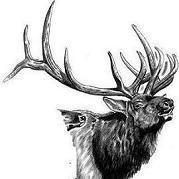- Replies 132
- Views 15.9k
- Created
- Last Reply
Top Posters In This Topic
-
leathermaneod 39 posts
-
 Mopar1973Man 26 posts
Mopar1973Man 26 posts -
 AH64ID 19 posts
AH64ID 19 posts -
 dripley 14 posts
dripley 14 posts
Most Popular Posts
-
There was a few old articles I remember reading about filling the oil filters. A few strange warranty claims on Dodge was one that wipe out a piston because of a mouse turd. Yeap... A mous
-
Thread got big in a few days so I am just going to jump in here... I run synthetic for 3 main reasons. 1) Cold temperature performance. I have seen the published specs a
-
Won't blow. Truck wears out from metal fatigue. Then engine gets sold and wears out two more trucks.


Hi all,
So I'm getting ready to do an oil change and I realized that I'm paying almost as much for Valvoline Premium Blue Extreme 5w-40, which is full synthetic(not sure if it's group 3 or 4 though) as I would be for some of the Amsoil products which I know are group 4 base stocks. So I'm looking into switching to Amsoil. I'd like opinions on which version to use and if I should get a bypass filtration kit while I'm at it. I know they have several different diesel oils and I don't know which one I should use. I originally went with the Valvoline PBX because I wanted the 5w-40 and full synth for the cold temps up here. I can definitely hear when the oil gets to the motor which makes me feel a lot better about things. So I don't know if I should use 15w-40 with Amsoil since its synthetic or if I should still use the 5w-40 even though its recomend for newer engines. I'm also wondering how long I should go on an interval. I was always brought up on 3000 miles, but I know you'll all say that's crazy. So I'm looking to extend intervals and save some cash with this stuff being so expensive. I've read a lot about oils especially when deciding to go with the Valvoline PBX in 5w-40, so I know some general stuff. I'm just looking for some specifics and opinions and advice from you all.
Thanks!